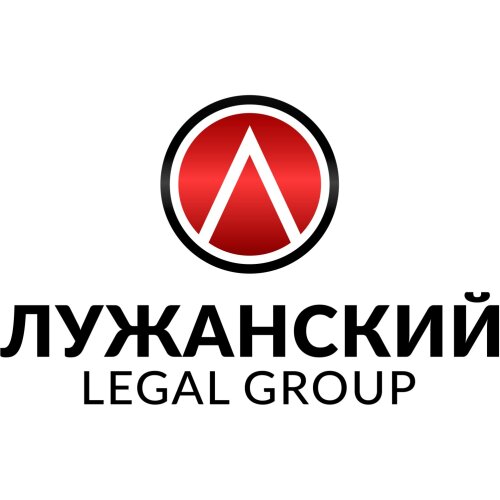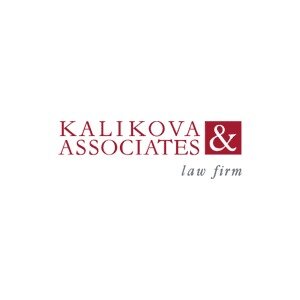Best Sanctions & Export Controls Lawyers in Kyrgyzstan
Share your needs with us, get contacted by law firms.
Free. Takes 2 min.
Or refine your search by selecting a city:
List of the best lawyers in Kyrgyzstan
About Sanctions & Export Controls Law in Kyrgyzstan
Sanctions and export controls are legal tools that regulate the movement of goods, technology, services, and finances across the borders of Kyrgyzstan. These laws are designed to ensure national security, comply with international obligations, and prevent the proliferation of controlled items, dual-use goods, and sensitive technologies. In Kyrgyzstan, compliance with both domestic and select international sanctions is required, and violations can lead to severe penalties, including criminal charges, fines, and loss of export privileges. The country’s geographic position as a transit route in Central Asia means businesses and individuals must be aware of cross-border legal requirements and restrictions.
Why You May Need a Lawyer
Legal matters related to sanctions and export controls can be highly complex. You may need a lawyer’s help in the following situations:
- If your business plans to export or import goods, technologies, software, or services that may be subject to restrictions.
- If you are unsure whether your goods fall under dual-use or controlled item categories.
- If your transactions involve countries, entities, or individuals that may be subject to international or national sanctions.
- If you have been contacted by customs, law enforcement, or regulatory bodies regarding compliance issues.
- If you seek to challenge or appeal administrative decisions related to denied licenses or permits.
- If you need guidance on implementing internal compliance programs or conducting due diligence in high-risk transactions.
A lawyer specializing in sanctions and export controls can help you interpret the relevant laws, prepare necessary documents, interact with authorities, and reduce the risk of legal violations.
Local Laws Overview
Kyrgyzstan’s sanctions and export control laws are influenced by both domestic legislative acts and its commitments to international organizations, such as the Eurasian Economic Union (EAEU) and the United Nations. Key aspects of the legal framework include:
- The Law on Export Control regulates the export, import, and transit of items that could be used for military or dual-use purposes.
- Licenses are required for the export of certain goods and technologies, especially those listed as dual-use or under technical regulations.
- National sanctions can be imposed by government decrees, which may align with or differ from international sanctions lists, depending on political and economic interests.
- Customs authorities enforce controls at borders and have the power to detain goods suspected of violating regulations.
- Penalties for non-compliance may include fines, confiscation of goods, cancellation of licenses, and, in extreme cases, criminal prosecution.
- Entities are responsible for conducting due diligence to ensure they are not dealing with sanctioned parties or prohibited goods.
Additionally, companies should be aware of sector-specific export rules, changes in international obligations, and the evolving nature of lists of controlled goods and sanctioned entities.
Frequently Asked Questions
What are sanctions and export controls?
Sanctions are restrictions imposed by governments on trade, finance, or interactions with specific countries, individuals, or entities. Export controls are legal measures that regulate the export and import of goods, technology, and services to prevent misuse and protect national interests.
Who is affected by these laws in Kyrgyzstan?
Individuals and companies involved in exporting, importing, or re-exporting goods, technologies, or services from or into Kyrgyzstan must comply with sanctions and export control regulations. Transit and logistics companies are also affected.
Can I export dual-use goods without a license?
No. Exporting dual-use goods, which can have both civilian and military applications, requires a license from the relevant authorities. Unauthorized export can result in serious penalties.
How do I know if my business partner is subject to sanctions?
You should perform due diligence by checking national and international sanctions lists. Legal advice or specialized compliance tools may help in identifying sanctioned parties.
Are there international sanctions that Kyrgyzstan recognizes?
Kyrgyzstan adheres mainly to UN sanctions and has its own procedures for imposing national measures. It does not automatically recognize sanctions enacted by other governments, such as those of the United States or the European Union.
What government body oversees export controls in Kyrgyzstan?
The State Service for Export Control and the State Customs Service are the main regulatory authorities responsible for enforcing export controls and overseeing compliance with related legislation.
What should I do if my goods are detained by customs?
You should immediately seek legal advice. Provide all relevant documentation showing compliance, and be ready to cooperate with investigations. Legal support can help challenge unjustified detentions.
Are financial transactions also controlled?
Yes. Financial transactions involving sanctioned individuals or entities are prohibited. There are also reporting obligations for certain high-value or suspicious transactions.
What are the penalties for violating export control or sanctions laws?
Penalties can include administrative fines, confiscation of goods, cancelation of business licenses, and criminal charges, depending on the severity of violation.
How often do export control lists or sanctions change?
Lists are updated regularly to reflect changes in international relations, technology, and national security needs. Staying informed or consulting legal experts is crucial for ongoing compliance.
Additional Resources
For further information and support, consider reaching out to these entities:
- State Service for Export Control under the Ministry of Economy and Commerce of the Kyrgyz Republic - The main authority regulating export controls and licensing.
- State Customs Service - Responsible for border control and enforcement of import-export regulations.
- Ministry of Foreign Affairs of the Kyrgyz Republic - Information about current national and international sanctions.
- Chamber of Commerce and Industry - Supporting businesses with compliance guidance and updates.
- Law firms specializing in international trade - Offering tailored legal advice for complex transactions and disputes.
Next Steps
If you need legal assistance with sanctions or export controls issues in Kyrgyzstan, take the following steps:
- Collect all relevant documents, contracts, and correspondence related to your transaction or regulatory inquiry.
- Identify the specific issue or question you have about sanctions or export controls.
- Contact a lawyer or legal consultant who specializes in this area of law and is licensed to practice in Kyrgyzstan.
- Prepare a summary of your business activities, partners, and the goods or services involved to accelerate the consultation process.
- Continuously monitor changes in local and international regulations that may affect your business or personal activities.
Seeking professional legal advice early can help prevent violations, protect your interests, and ensure smooth operations in compliance with Kyrgyzstan’s sanctions and export control laws.
Lawzana helps you find the best lawyers and law firms in Kyrgyzstan through a curated and pre-screened list of qualified legal professionals. Our platform offers rankings and detailed profiles of attorneys and law firms, allowing you to compare based on practice areas, including Sanctions & Export Controls, experience, and client feedback.
Each profile includes a description of the firm's areas of practice, client reviews, team members and partners, year of establishment, spoken languages, office locations, contact information, social media presence, and any published articles or resources. Most firms on our platform speak English and are experienced in both local and international legal matters.
Get a quote from top-rated law firms in Kyrgyzstan — quickly, securely, and without unnecessary hassle.
Disclaimer:
The information provided on this page is for general informational purposes only and does not constitute legal advice. While we strive to ensure the accuracy and relevance of the content, legal information may change over time, and interpretations of the law can vary. You should always consult with a qualified legal professional for advice specific to your situation.
We disclaim all liability for actions taken or not taken based on the content of this page. If you believe any information is incorrect or outdated, please contact us, and we will review and update it where appropriate.
Browse sanctions & export controls law firms by city in Kyrgyzstan
Refine your search by selecting a city.











